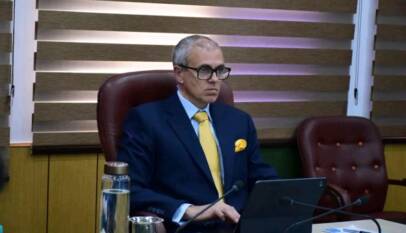Budget: Govt needs to come clear on capital gains
On Feb. 1, 2019, the Narendra Modi-led government will come up with budget proposals for the ensuing year just before the country heads for general elections. The industry surprisingly talks of a ‘full budget’ as against a ‘vote on account’ and it’s expected to be a people-friendly budget. As such, let’s summarise the expectations from this budget.
Currently, income tax is not charged for income less than Rs 2,50,000 for individuals (not exceeding 60 years) and HUF. Keeping in mind the need for additional savings, this limit must be increased to Rs 5,00,000. Similar increase must also be considered for senior and super senior citizens.
The current government has stressed the need to improve ease of doing business in India. While many initiatives have been attempted, more is desired to reduce the compliance burden and litigation. There has been lot of outcry from investors about the tax authorities’ actions to tax start-ups on excess money received beyond the valuation. Considering this unrest, the Ministry of Commerce and Industry has made a welcome move to inform about certain criteria to seek approval for start-ups recognised with the DIPP. It is expected that these provisions will be included as per the Finance Bill 2019. To encourage investments in India, the budget may prescribe a threshold or broaden the purview of this criteria to include not just start-ups registered with the DIPP but also add other start-ups with additional conditions, if necessary.
In the case of mutual funds, any shift from one scheme to another has been scrutinised for capital gains tax. Any shifts between schemes like a shift from a dividend option to a growth option or vice-versa, is liable to pay capital gains tax. Any amendment or efforts to provide clarity by specifically excluding such shifts between schemes from the definition of ‘transfer’ may make these tax savings schemes more attractive to individuals.
Special Economic Zones (SEZs) are intended to give a boost to the manufacturing and service sectors and will encourage units to be set up within the areas. However, extension of the Minimum Alternate Tax (MAT) to SEZ units has eliminated any tax arbitrage to such units. Currently, the rate of MAT is roughly 20.6%, including surcharge and cess (base rate of 18.5%) if total income exceeds Rs 1 crore (roughly 21.6% if total income exceeds Rs 10 crore). A reduction in the base rate to 15% would provide a huge relief to the industry.
CBDT has notified a safe harbor mark-up that does not exceed 5%, for receipt of low value-adding intra-group services from group companies, provided the value of international transaction does not exceed Rs 10 crores with certain parameters as per Rule 10TC(x). Any move to generalise the applicability of such provisions/mark-up to all the taxpayers in line with BEPS action on low value-adding services shall provide clarity and substantially reduce litigation.
As per provision to section 92C(4) of the Act, no deduction under section 10A or section 10AA or section 10B or under Chapter VI-A shall be allowed in respect of the amount of income by which the total income of the assessee is enhanced by the Assessing Officer, having regard to arm’s length price. In this regard, there has been no provision under the Act, which expressly provides that the tax holiday benefit is either available or not available for any adjustment under APA and various positions were taken based on interpretations to either claim benefit or not to claim benefit.
A specific provision for applicability of tax holiday benefit to any adjustment under APA shall be a welcome move for such applicants.
Paving the way for sustainable development, India’s first E-highway to change the public transportation system
Increasing the resilience in gearing towards Sustainable Development, India’s proposed ele…








